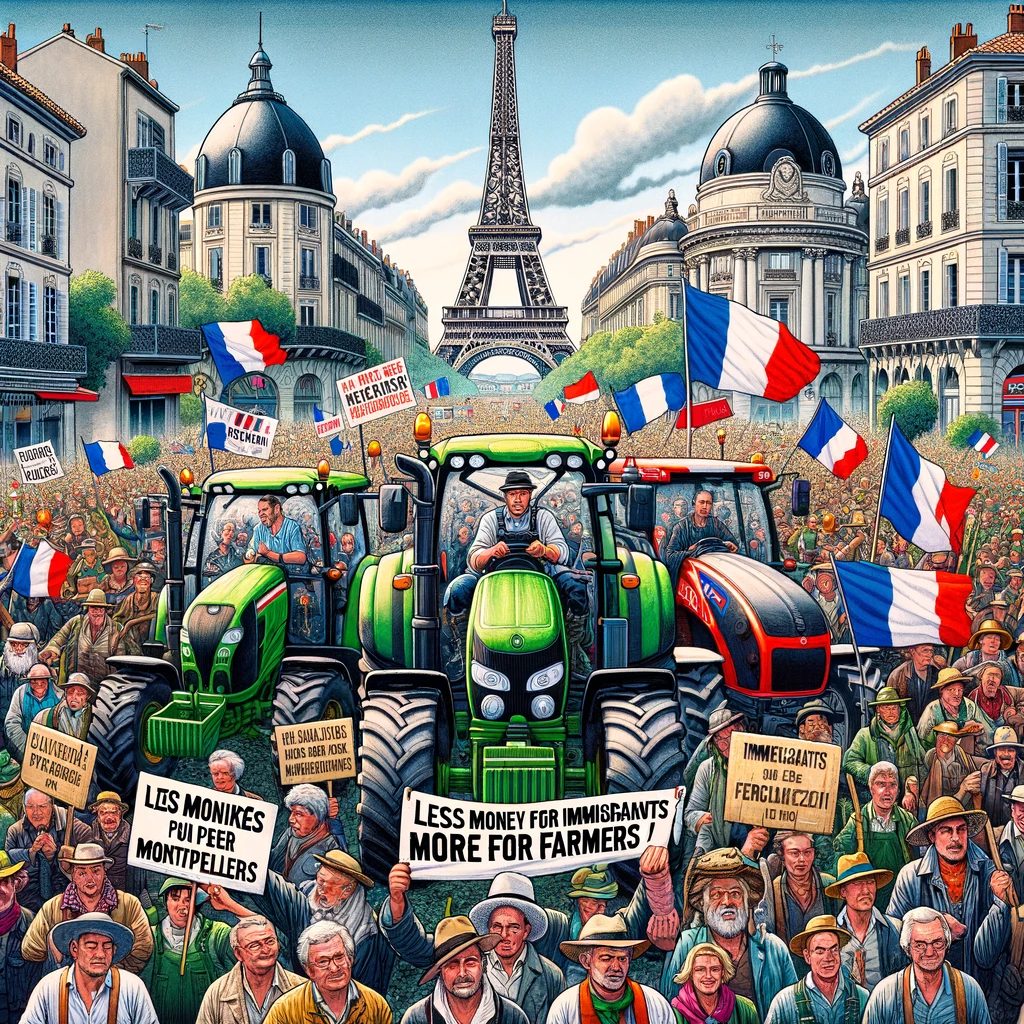French Farmers Demand Reduced Spending on Immigrants, Increased Support for Agriculture
Summary: Farmers in Montpellier, France, are advocating for reduced government expenditure on immigrants and an increase in support for local agriculture. This stance has sparked a variety of opinions.
“Less money for immigrants and more for farmers”, say French farmers in Montpellier. Do you agree? pic.twitter.com/GOOeycchul
— RadioGenoa (@RadioGenoa) January 27, 2024
User Reactions:
- शून्य (@Shunyaa00) “Many people are gathering in the city to support farmers. Without farmers, there is no food.”
- Balwant Bishnoi (@Bishnoibs) “No spending on immigrants at all, everything should be provided to the locals.”
- Maakhn Chor (@maakhnchor) “No support should be provided to illegal immigrants.”
- Tuan Nguyen (@Tuanbrothers81) “Agree.”
- Jay Pennview (@jaypennview) “Absolutely agree.”
- Harish Mali (@HarishMali06) “Jai Shri Ram (Salutations to an Indian deity).”
- Col Hunny Bakshi, VSM (@colhunnybakshi) “Without farmers, there is no food. We had similar issues in our country.”
- Captain Good Vibes (@herlihy_th42558) “100% support for French farmers. Nothing should be given to those who contribute nothing.”
- Amit Shah (Parody) (@Motabhai012) “Why provide funds to immigrants?”
- das filter (@Das_Filter) “Citizens should be prioritized.”
- EleventySigma CygnusAtratus (@eleventysigma) “The fact that farmers have to protest about this issue itself should be a top priority for the government.”
- Mahatma Gandhi (Parody) (@GandhiAOC) “The French farmers know how to protest.”
- Hope Hunk (@HopeHunk) “It shouldn’t be a choice between farmers or immigrants.”
- Voice Unchained (@VocUnchained) “The only solution is deportation!”
Commentary and Insights
The situation in Montpellier reflects a broader debate about governmental priorities and resource allocation. The sentiment expressed by many users underscores a universal respect for the agricultural sector, often seen as the backbone of a country’s sustenance. The dichotomy presented in the reactions between supporting local farmers and assisting immigrants highlights complex socio-economic and political challenges. The diversity of opinions showcases a rich tapestry of perspectives, ranging from empathy for farmers’ struggles to harsh stances on immigration policies.










